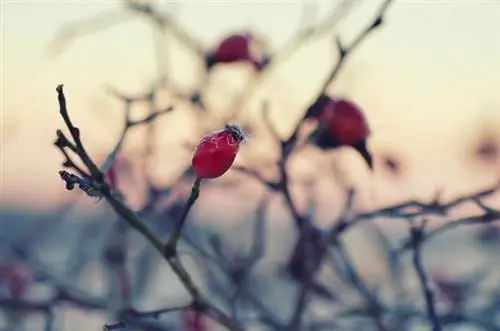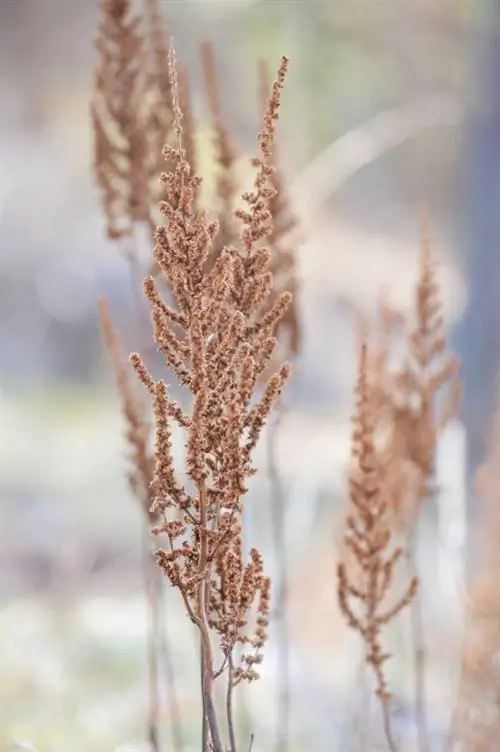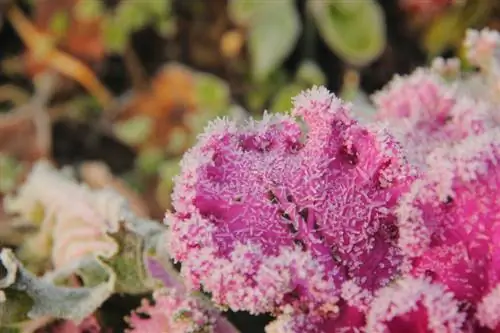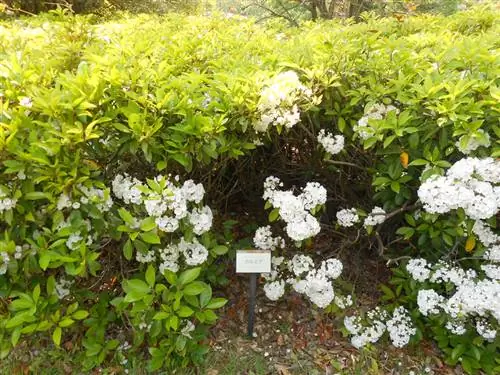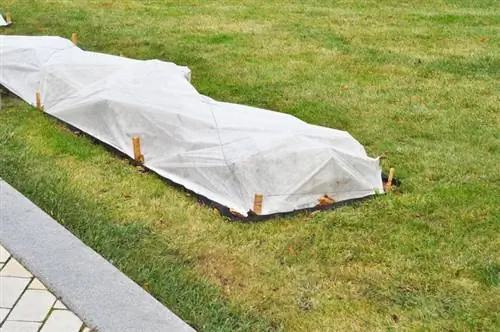- Author admin leonars@hobbygardeners.com.
- Public 2023-12-16 16:46.
- Last modified 2025-06-01 06:02.
In nature there are around 100 different wild species of roses as well as numerous natural hybrids that grow in the wild. But people have also been cultivating these beautiful flowering shrubs for over 2,000 years, so that today there are many thousands of different cultivars. However, not all rose varieties are hardy, so you should definitely protect your rose bush from frost.
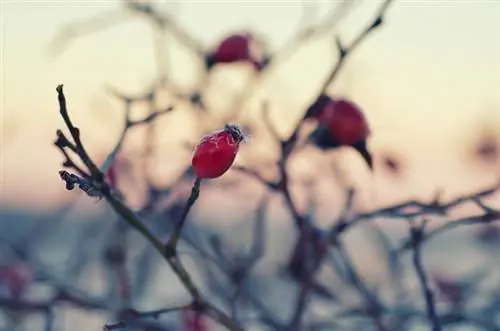
How do I overwinter roses correctly?
To overwinter roses successfully, you should stop fertilizing in July, provide them with patent potash in August, carry out final pruning measures before the first frost and protect the roots, trunk and crown from frost by covering them with soil, Cover jute fabric, winter fleece or coconut mats.
Prepare roses for winter in good time
So that your roses get through the winter well, you first have to prepare them for the cold season in good time. This includes, above all, fertilization in a timely manner - i.e. H. as early as July - and instead supply the plant with a portion of patent potash in August. In addition, you should carry out final pruning measures on the more frequently flowering varieties - such as removing faded or damaged shoots - before the first frost. Under no circumstances should roses be cut during frost!
Preparing roses for winter
You must also pack your roses for winter before the first frost to avoid frostbite. It is particularly important to protect the roots, which you can achieve by piling up soil. For many types of roses, the trunk and crown should also be wrapped frost-proof, for example with jute fabric (€17.00 on Amazon), winter fleece, winter protection mats made from reeds or coconut mats. Covering the root area with spruce branches has also proven to be very useful.
Overwintering potted roses properly
Potted roses in particular are at great risk from frost as their roots lack the protective layer of soil. Therefore, roses kept in pots should either be kept cold but frost-free over the winter or, if they are to remain outside, packed up appropriately for the winter.
Tip
So-called patio roses are particularly hardy, they sprout reliably every year and are particularly suitable for larger containers. They are larger and more robust than dwarf roses, but not as large as the cluster-flowered specimens.

